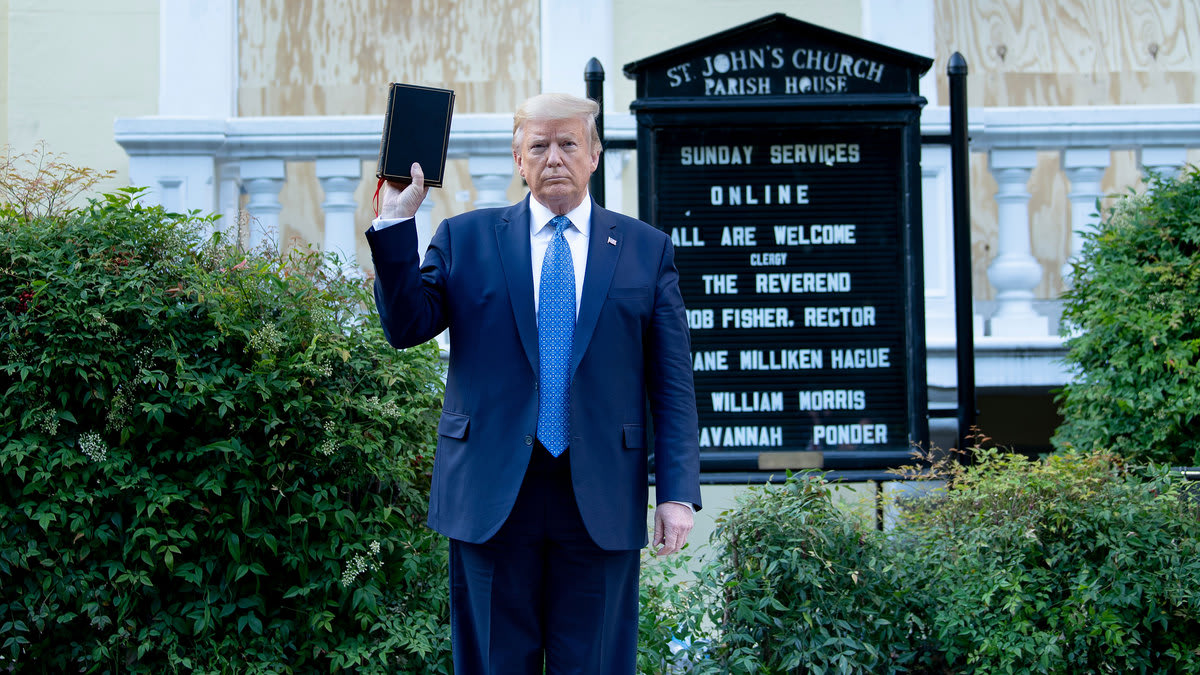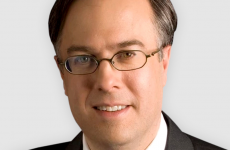The recent death of Christian evangelist Luis Palau, the “Billy Graham of Latin America,” has me thinking about how the Trump era has affected the ability of Christians to share the good news about Jesus’ salvation with a diverse and skeptical world. According to his New York Times obituary, Palau “was especially aware of the common assumption that evangelicals are rabid right-wingers,” so he sought to compensate by holding “festivals” in progressive cities. “In New England, when you say ‘Christian,’ they think ‘those maniacs on the right,’” Palau told the Times in 2001. “I want to show that we are not maniacs but that we are well educated. This is a rational faith, but a faith that fires you up.” If you believe, as Palau did (and as I do), that Jesus is “the way, the truth, and the life,” then it makes sense to share the good news with everyone you can—yes, including college-educated urbanites and progressives. That’s what Palau did.
But what happens when so many of Christ’s messengers have sacrificed their credibility and moral high ground by allying with a controversial political figure such as, say, Donald Trump? What happens when Jesus’ brand ambassadors to a lot of Americans are Donald Trump and Jerry Falwell Jr., not Billy Graham and Pope Francis, much less Jesus himself? In today’s climate, you might be forgiven for thinking that Christians are, as Palau worried we would be perceived, “maniacs.”
Evangelical Christians thought lining up behind a Trump was worth it; they couldn’t be more wrong. The cost-benefit analysis that led them to support him as the “lesser of two evils” in 2016 didn’t factor in the long-term damage he, in fact, is still doing.
You think gaining a few Supreme Court seats guarantees an enduring legacy? Consider the consequences of… eternity. This puts the political trade-offs so many Evangelicals made in fuller perspective. It also highlights the potential consequences of one side of the political aisle trying to monopolize an entire religious faith.
According to political scientists David E. Campbell and Geoffrey C. Layman of the University of Notre Dame and John C. Green of the University of Akron, authors of Secular Surge: A New Fault Line in American Politics, this corruption is happening already. They designed an experiment to test whether the rise of Americans who identify as “nonreligious” resulted from backlash against the Christian Right. The experiment involved first asking participants about their views on faith and then exposing them to news stories that mix religion and politics; the experiment concluded by again asking participants about their religious identity.
During an interview with Religion News Service, Campbell said that just exposing people to one such story was “enough to push a sizable number of people away from holding a religious affiliation. That’s one story at one point in time, and we can get that effect,” he said. “Imagine what happens when people are exposed to hundreds of stories over many, many years. It would only reinforce that idea that religion and the Republican Party go together, and that if you’re not sympathetic to the Republican Party, you don’t want anything to do with religion.”
The connection between Christianity and the Republican Party has existed for four decades. But it’s fair to say that associating religious faith with Ronald Reagan’s sunny optimism or George W. Bush’s “compassionate conservatism” does not result in the same level of negative repercussions as embracing the MAGA ethos.
As Daniel K. Williams writes in The Politics of the Cross, “[J]ust as some evangelical supporters of Republican conservatism in the 1970s and 1980s conflated white middle-class suburban fears about rising crime rates and social welfare costs with Christian principles, so some evangelical supporters of the contemporary Republican Party have conflated white working-class rural fears about immigration, gun control, and cultural change with Christianity.
“The result may be even more catastrophic for the gospel than the Christian conservatism of the late twentieth century was, because the Christian nationalism of the contemporary Republican Party is even further removed from historic evangelicalism—and certainly further removed from historic Christian principles, at least in its attitude toward immigrants and marginalized racial minorities.”
This problem isn’t limited solely to religion. In my estimation, Trumpism has tarnished numerous causes, including (but not limited to) our credibility when it comes to 1) compassionately championing the unborn and the sanctity of life, 2) questioning the wisdom of spending $1.9 trillion, and even 3) celebrating the values, traditions, and works of art of our Western civilization. In a recent episode of the Bulwark podcast, Charlie Sykes reflected on this development, lamenting that Western civilization has been co-opted by “white nationalists and racists.”
To put it in business terms that a consumerist society can understand, we have a brand problem. If you’ve never heard it, Grover Norquist, the conservative anti-tax crusader, employs a rather colorful hypothetical to explain the importance of brand management (as it pertains to tax cuts): “Coca-Cola spends a lot of time quality control branding Coca-Cola,” he says. “Everybody knows what’s in Coca-Cola. And so you can buy a bottle of Coke, take it home, you don’t have to ask what’s in it, or read the ingredients, or ask your friends about [it],” he continues.
“Finding Donald Trump as the de facto leader of your movement—in the eyes of many Americans, at least—is sort of like finding a rat head in your Coke bottle. ”
But “if you get two-thirds the way through your bottle of Coke and you look in and there is a rat head in what’s left in your Coke bottle, you do not say to yourself, ‘You know, I’m wondering whether I’m going to finish all of the rest of this particular bottle of Coke this evening.’…It damages the brand.”
“Republican elected officials who vote for tax increases,” Norquist concludes, “are rat heads in the Coke bottle. They damage the brand for everybody else.”
This colorful metaphor could be extended into other realms. Trumpism, I would argue, has damaged the Christian brand, as well as the conservative brand.
The good news is that Trump does not exist in a vacuum. Others are seeking to reach disparate communities and separate the gospel message from toxic politics. In this regard, Luis Palau and his successors (people like Christian leaders including New York City pastor Tim Keller and president of the Ethics & Religious Liberty Commission Russell Moore) provide a ray of hope and a hopeful alternative.
Still, finding Donald Trump as the de facto leader of your movement—in the eyes of many Americans, at least—is sort of like finding a rat head in your Coke bottle. But the consequences are even more grim. In some cases, Trumpism lasts forever.


